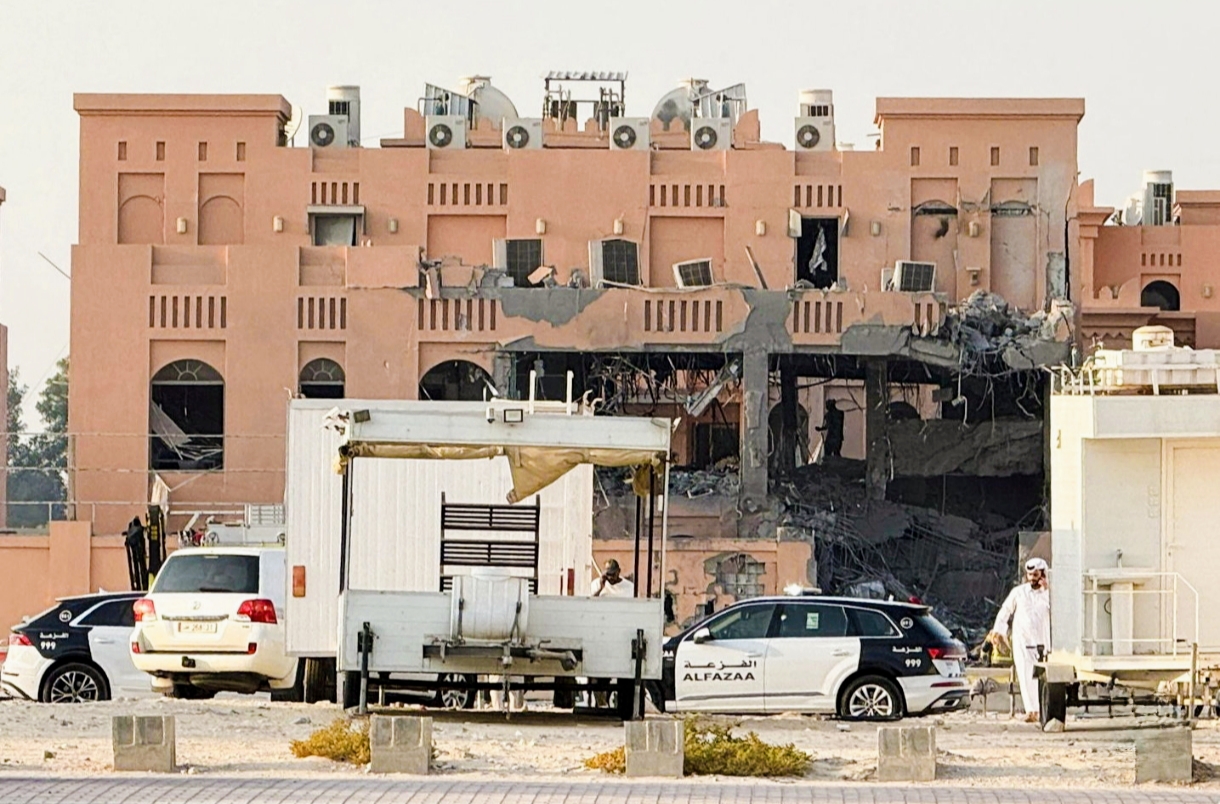The United Nations Human Rights Council announced today, Monday, that it will hold an emergency session tomorrow, Tuesday, to discuss the Israeli airstrike that targeted leaders of Hamas inside Qatari territory on September 9.
The Council stated in an official statement that the session comes in response to two urgent requests submitted by Pakistan on behalf of the Organization of Islamic Cooperation, and Kuwait representing the Gulf Cooperation Council, to discuss what it described as "the recent Israeli military aggression against Qatar," according to the "France Press" agency.
* Exceptional Arab Islamic Summit in Doha
In a parallel development, Doha is hosting today, Monday, an emergency Arab Islamic summit with the participation of leaders from 57 Arab and Islamic countries to discuss ways to respond to the unprecedented Israeli attack on Qatari territory.
The Qatari capital witnessed a preparatory meeting yesterday evening, Sunday, for foreign ministers and representatives of the participating countries, during which they discussed a strong draft final statement that includes a clear condemnation of the Israeli attack and a firm rejection of repeated threats against Qatar or any Arab or Islamic country.
* Qatari Prime Minister: We Demand Accountability for Israel
For his part, Sheikh Mohammed bin Abdulrahman Al Thani, the Qatari Prime Minister, emphasized the necessity for the international community to act decisively to hold Israel accountable for its "crimes," affirming that his country will continue mediation efforts in cooperation with Egypt and the United States to end the ongoing war in Gaza.
* Details of the Israeli Attack on Doha
In a serious precedent, Israel launched an airstrike targeting a residential area in the Qatari capital, Doha, last Tuesday, resulting in the death of 6 people, including a Qatari security officer and the son of a prominent Hamas leader, Khalil Al-Hayya, in addition to the head of his office staff.
According to sources in Hamas, the attack was a clear attempt to assassinate its senior leadership, which miraculously survived the targeting.
* International Criticism and Widespread Diplomatic Action
The attack sparked a wave of widespread international condemnations, including a rare criticism from U.S. President Donald Trump, who described Qatar as a "strategic ally of the United States" and expressed his concern over the Israeli escalation against an important ally in the region.
Meanwhile, Saudi Arabia confirmed through its Foreign Minister Prince Faisal bin Farhan that the attack represents a "flagrant violation of international laws and norms," stressing that the preparatory meeting in Doha set a clear agenda for the emergency summit.
* Anticipated Statement from the Summit: No Normalization Under Fire
According to the draft final statement expected to be issued by the summit, the Israeli aggression against Qatar poses a direct threat to "peace efforts in the Middle East" and undermines any progress in the normalization process, whether existing or future agreements.
The draft also "firmly rejects" any Israeli threats to target Arab or Islamic countries in the future, considering the attack on Qatar an overt attempt to thwart political mediations aimed at stopping the aggression on Gaza.
* Message of Arab Islamic Solidarity
For his part, the Secretary-General of the Arab League Ahmed Aboul Gheit stated that the convening of the summit in Doha carries a clear message: "Qatar is not alone, and the Arab and Islamic world stands united with it against unlawful aggressions."
* Strategic Background
It is worth noting that Qatar hosts the largest U.S. military base in the Middle East and plays a pivotal role in regional mediations, especially in the ongoing conflict between Israel and Hamas in Gaza, in cooperation with Washington and Cairo.

